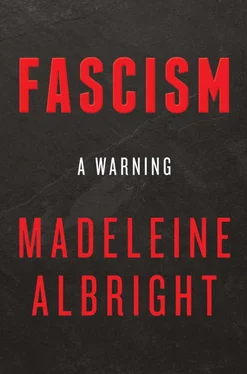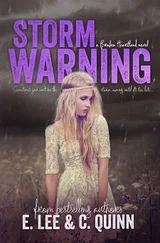I share that hope, but we must remember that the nerve-shattering forces at work in the United States and the world today were hardly set in motion by one man. The currents will still be felt long after Trump exits the public stage. In the past, I have always believed that time was on our side—as a healer, a teacher, a creator of space for innovation and break-the-mold ideas. Now I’m not so sure. My yearning to be upbeat is as powerful as ever, but a lot of what I see I don’t like. On the economy, I’m reminded of the Sgt. Pepper tune where Paul sings, “I’ve got to admit it’s getting better,” and John taunts him, “It can’t get no worse.” Perspective is everything. Stock markets may soar, but living standards for the majority haven’t improved in a long time, and large numbers of young people are convinced they will never do as well as their parents.
If so many didn’t feel they were being left behind, they would be more upbeat and less inclined to ignite little fires on the Internet and in the voting booth. Expectations matter. The jumps in family income that took place in the United States after World War II may have seemed normal then, but they were, in fact, unprecedented—a product of recovery from Depression and war in a country that controlled an outsize portion of global wealth. If people are now willing to settle for steady, modest gains, and if tax and budget policies are reformed to ensure that benefits are more widely distributed, prospects will brighten. However, we may be in for a long wait.
More generally, I fear that we are becoming disconnected from the ideals that have long inspired and united us. When we laugh, it is more often at each other than with each other. The list of topics that can’t be discussed without blowing up a family or college reunion is lengthening. We don’t just disagree; we are astonished at the views that others hold to be self-evident. We seem to be living in the same country but different galaxies—and most of us lack the patience to explore the space between. This weakens us and does, indeed, make us susceptible.
The trio of nightmares cited earlier are exaggerated, as dreamscapes tend to be. However, the emotions and attitudes they reflect are real and part of a waxing hostility toward one another that we seem unable to reverse. It doesn’t take much imagination to conceive of circumstances—another major recession, a corruption scandal, racial unrest, more terror incidents, assassinations, a series of natural disasters, or an overnight plunge into an unexpected war—that might cause a split too wide for our constitution, democracy’s needle and thread, to mend.
Seventeen
The Right Questions
Whoever fights with monsters should see to it that in the process he does not himself become a monster.
—NIETZSCHE
WITHIN EACH OF US, THERE IS AN INEXHAUSTIBLE yearning for liberty, or so we democrats like to believe. However, that desire often seems in competition with the longing to be told what to do. We are of two minds. In classrooms, we search constantly for the right balance between instilling discipline in our students and allowing their curiosity and creativity to run free. In religious circles, rote memorization is the means of learning favored by some, but for others the search for wisdom, though beginning with scripture, opens itself to the full range of human experience and imaginings. When rabbis are accused of answering every question with a question, they typically reply: “And why do you think that is?” In the Gospels, Jesus asks forty questions for every declarative statement he makes. In business, too, and in the armed forces, there are commandments that must be obeyed, mixed with exhortations to reject the stale conventions of dogma in search of fresh insights.
We all value the right to push against boundaries and go boldly where none has preceded us; however, that is not all we value. Especially when we are afraid, angry, or confused, we may be tempted to give away bits of our freedom—or, less painfully, somebody else’s freedom—in the quest for direction and order. Bill Clinton observed that when people are uncertain, they’d rather have leaders who are strong and wrong than right and weak. Throughout history, demagogues have often outperformed democrats in generating popular fervor, and it is almost always because they are perceived to be more decisive and sure in their judgments.
In times of relative tranquillity, we feel we can afford to be patient. We understand that policy questions are complicated and merit careful thought. We want our leaders to consult experts, gather as much information as possible, test assumptions, and give us a chance to voice our opinions on the available options. We see long-term planning as necessary and deliberation as a virtue, but when we decide that action is urgently needed, our tolerance for delay disappears.
In those moments, many of us no longer want to be asked, “What do you think?” We want to be told where to march. That is when Fascism gets its start: other options don’t seem enough. There is a reason that vigilante movies are popular. We all know the scenarios: a law-abiding citizen is hurt—a loved one slain, a daughter kidnapped, a rape unprosecuted—and the police have no answer. Suddenly we feel ourselves identifying with an agent of vengeance such as those portrayed on-screen by Liam Neeson, Bruce Lee, Jodie Foster, or Batman, and all that pent-up fury goes in search of its target, due process be damned. When the villains are annihilated, we cheer. It is our nature—or at least part of it.
In the lives of nations, the origins of anger do not have to be deeply personal to awaken the desire for instant solutions. Mussolini and Hitler drew on the anguish of their citizens following the carnage of World War I. Kim Il-sung played guardian and guide in a country scarred by four decades of strife. Milošević and Putin tapped into deep wells of nationalist outrage in the aftermath of the Cold War. Chávez and Erdoğan rose to power amid political and economic crises that were knocking members of the middle class off their financial ladders and into poverty. Orbán and his fellow travelers on the European right promise to shield voters from the psychological demands that stem from religious, cultural, and racial diversity. Going much further back, the ancient Israelites—surrounded by enemies—pleaded with Samuel to give them a king, so that “we will be like all the other nations, with a king to lead us and to go out before us and to fight our battles.” The prophet cautions the Israelites to think twice, warning that the monarch they are demanding will certainly take their sons to be warriors, their daughters to be cooks, and their vineyards, fields, cattle, sheep, and servants to satisfy his own needs. Still the people persist, and their prayer is answered. A century later, their kingdom is split and careens toward destruction.
THERE IS NOTHING OBJECTIONABLE ABOUT WANTING A STRONG leader—few yearn for a weak one—but the list of national leaders who were thought virtuous before revealing one or more disastrous defects of character begins with history itself and is still lengthening. In 1980, Robert Mugabe was hailed as a hero of Africa for his role in freeing Rhodesia (now Zimbabwe) from white colonial rule. He proceeded to mismanage the country’s economy, foster corruption, run roughshod over human rights, suppress political dissent, and refuse to leave until finally forced out, in November 2017, at the age of ninety-three. In 1985, Hun Sen seemed the right man to lead Cambodia, still in recovery from the genocidal Khmer Rouge, but that was more than three decades ago, long enough for him to become a dictator. Uganda’s Yoweri Museveni promised full democracy when, in 1986, he took the helm of his country following a brutal civil war. Many considered him to be the herald of a new and enlightened generation of African leaders; but while others in his cohort have moved on, he has stayed and stayed, growing more autocratic with each term.
Читать дальше
Конец ознакомительного отрывка
Купить книгу












